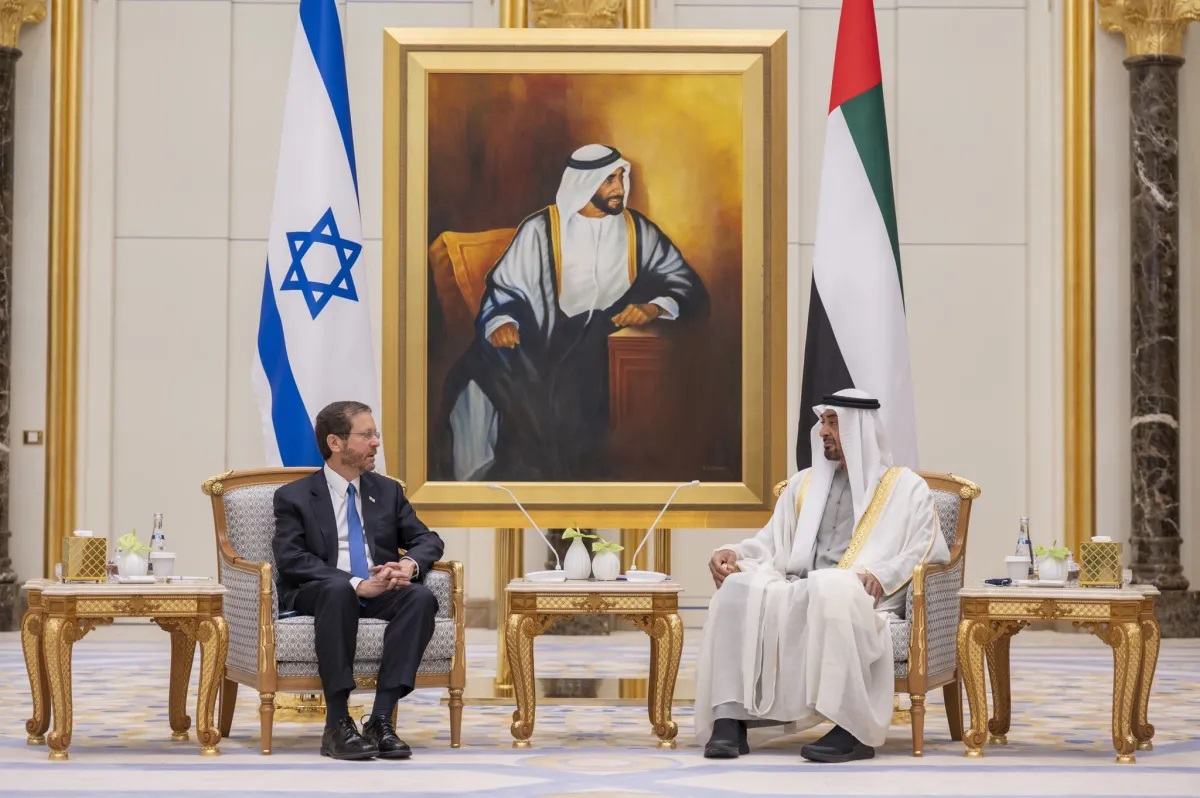Hypocritical Arab and Muslim Countries Help Israel kill More Palestinians While Condemning It
Dr Mustafa Fetouri | 25 April 2024
Most countries in the world, big and small, have expressed their condemnation and outrage at the Israeli genocide in the Gaza Strip, ongoing for the last 194 days. In diplomatic language or just blunt wording, like South Africa, each state has told Israel what it thinks of its military invasion of the Palestinian enclave. On the other hand, some countries have also been clear in expressing their support for the apartheid Occupation State, like the US, for example, whose President, Joe Biden, has on many occasions described his support for Israel as “ironclad” support. This has been repeated on many occasions and it is a fact since Israel was created 75 years ago.
Despite some clear hypocrisy in these declared positions, they have generally been maintained, albeit in change in diplomatic language as they face the severity and multifaceted genocide and increasing manifestations of famine in Gaza. In other words: states supporting Israel, largely, did not reverse their positions, despite watering down their talk when publicly expressing them.
Surprisingly, or maybe not, most political hypocrisy and inconsistency between words and deeds actually come from where, alas, Palestine was expecting some kind of solidarity: the Arab and Muslim world.
Muslim and Arab majority countries, including Turkiye, Saudi Arabia, Iraq, Egypt, United Arab Emirates, Azerbaijan and Kazakhstan are expected to support Palestine or, at least, remain neutral—a position that would earn them the contempt of their own people. All these countries, as well as Russia, Gabon and Brazil have already and repeatedly, condemned Israel for the genocide or, at least, called for ceasefire and for flooding Gaza with aid. That is their stated public positions but, in reality, they fail to translate such stated policies into actions that would certainly have an effect on the Israeli economy and war machine. In reality, this means they are not really any different from Israeli declared allies, like the US and others.
For example, Arab countries like Saudi Arabia, Iraq, Egypt, Qatar and the UAE collectively own The Arab Petroleum Pipeline Company, known as the SUMED pipeline, headquartered in Egypt’s Alexandria which is, even now, still supplying Israel with crude oil and helping its genocide in Gaza.
According to data from Oil Change International, an independent clean energy and advocacy group, the Sumed pipeline, which runs from the Red Sea to Egypt’s Mediterranean port city, Alexandria, provides small but “regular” supply of oil to the apartheid state. The pipeline, which is about 320 km, collects oil from Saudi Arabia, UAE and others before pumping the crude to terminals in Alexandria, on the southern Mediterranean shore, from where it is reloaded to tanks heading to Israel, a short distance eastwards. The idea of the 1970s project was to provide an alternative to the Suez Canal in times of crisis threatening the waterway. Right after the 7 October attack on Israel, Yemen’s Houthis announced their strategy of targeting all vessels connected to Israel as a way to support the Palestinian Resistance in Gaza.
Out of Israel’s 220,000 barrel/day oil imports, 60 per cent come from Kazakhstan and Azerbaijan— two Muslim majority countries. According to data from Kpler, energy research and data analysis firm, the other energy suppliers to Israel include Egypt, Brazil and Gabon in West Africa. Russia, also, supplies Israel with vacuum gas oil which can be upgraded into diesel for fuelling Israeli tanks as they continue bombing Gazans day and night, while jet fuel mainly comes from the US.
Iran’s Foreign Minister, Hossein Amirabdollahian, in a statement made during the emergency meeting of Organisation of Islamic Cooperation (OIC), in Saudi Jeddah city last October called on Muslim countries to stop exporting oil to Israel. Despite the fact that the OIC has a special office dedicated to boycotting Israel, none of the organisation’s member states considered even a temporary oil boycott of the apartheid state—the highest degree of hypocrisy for which, ironically, most Muslim and Arab country continue to blame the West, particularly the US.
The Israeli human-meat-grinders are kept turning, thanks to energy supplies from countries that never stopped bombasting the world media with their hypocritical calls for ceasefire and condemnation of Israeli massacres.
All the mentioned countries have supplied – and keep supplying – Israel with the very essence of keeping its fighter jets flying, tanks ploughing streets and artilleries destroying buildings, including hospitals. They are exporting to Israel crude oil and refined oil products, including diesel (mainly for tanks) without a hint of embarrassment
But the most hypocritical are, unfortunately, the Arab and Muslim countries. For the Muslim countries, they fail to activate their already taken decisions to boycott Israel. For the Arab countries, the very idea of using the SUMED pipeline, basically envisioned as an Arab unity project, to supply Israel is most embarrassing and most shameful of all.
Israeli allies, honestly, deserve some credit because they put their money where their mouths are, while others claiming to be supporting Palestinians deserve very little gratitude. A good example of this double standard and hypocritical political bravado is manifested in the example of South Africa—neither an Arab nor Muslim country, took the courageous step of filing a genocide case against Israel in the World Court.
If countries claim to be supporting Palestinians, or seriously rejecting the genocide, have the political will to act on their political positions, they will certainly impact the Israeli government, forcing it, at least, to accept ceasefire instead of begging Netanyahu to kill less babies, women and children by bombardment or starvation.
Mustafa Fetouri is a Libyan academic and freelance journalist. He is a recipient of the EU’s Freedom of the Press prize.
This article was originally published on Middle East Monitor.
Views in this article are author’s own and do not necessarily reflect CGS policy.
